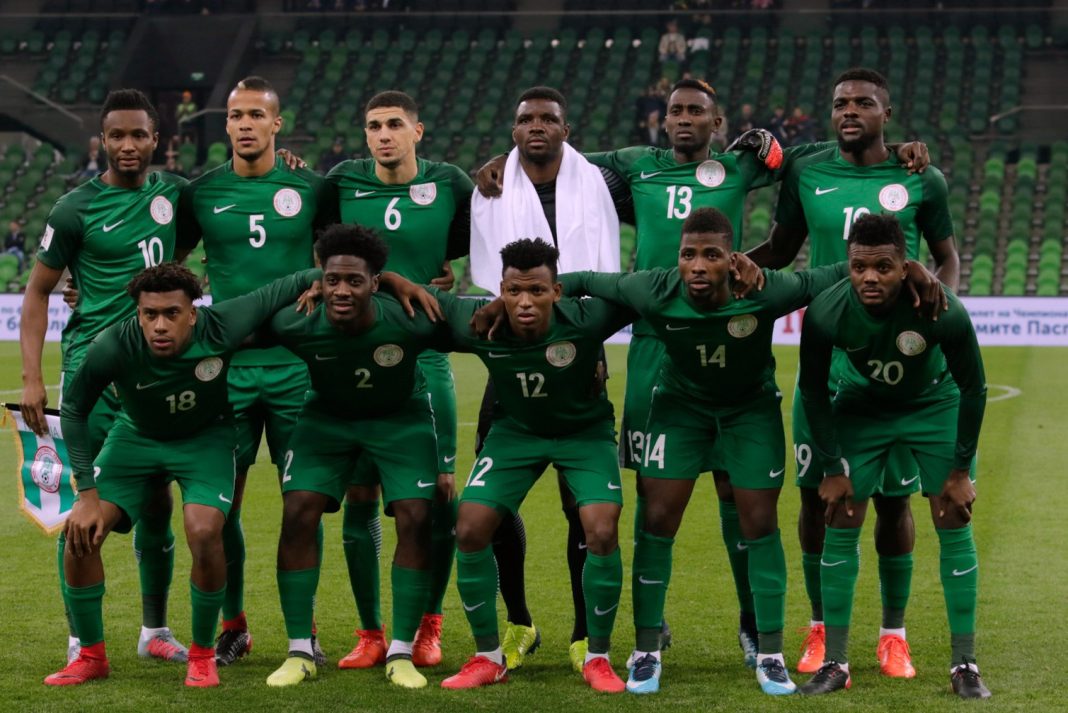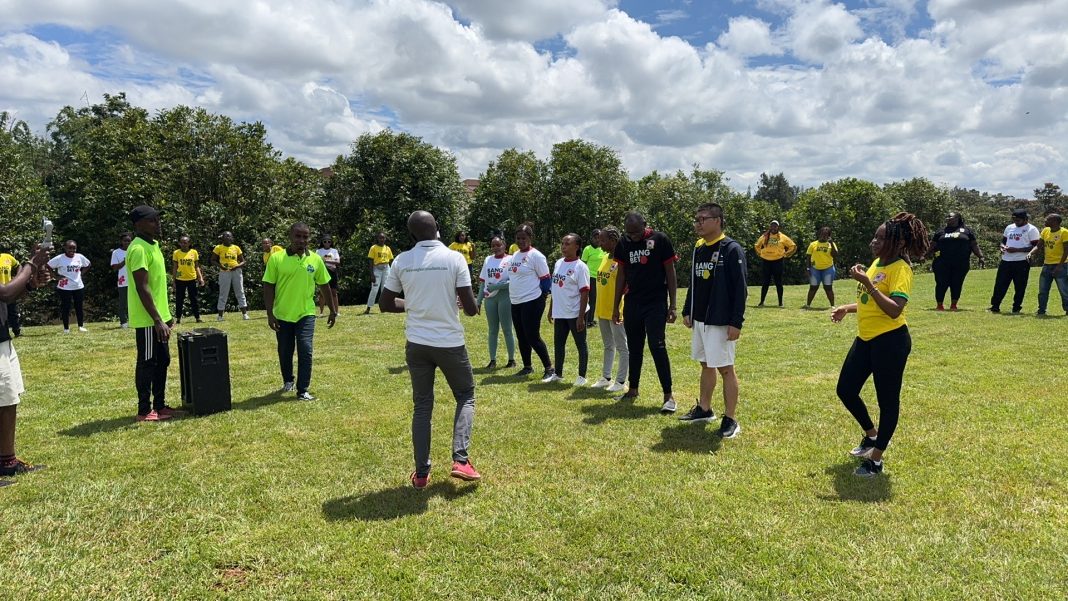Introduction
Sports betting has become increasingly popular across Africa in recent years. Many African countries have seen significant growth in online and mobile sports betting. This growth has been fueled by several factors including increased internet and smartphone penetration, legalization of sports betting in many markets, and the prominence of European football leagues with African players and fans.
Nigeria in particular has emerged as one of the largest sports betting markets on the continent. The Nigerian sports betting industry is now worth an estimated $2 billion annually. Sports betting shops can be found on almost every street corner in cities across Nigeria. Football betting makes up a large portion of the market, but basketball, tennis, virtual games and other sports also see betting action.
While Nigeria has dominated headlines, other African countries like Kenya, Ghana and South Africa also have notable sports betting markets. Each country has taken its own regulatory approach to the industry. Sports betting remains illegal in some nations while others have legalized and instituted licensing systems. As internet access spreads across Africa, more bettors are accessing online sportsbooks from their phones and computers.
This article will take a closer look at the sports betting industry in Nigeria and compare it to other major African markets like Kenya, Ghana and South Africa. Key factors like market size, growth, regulation, popular sports and more will be examined to see how Nigeria stacks up against its continental counterparts.
Growth of Sport Betting in Nigeria
Sport betting has experienced massive growth in Nigeria over the past decade. While gambling and betting has always been popular in the country, the emergence of online sportsbooks and mobile betting apps has caused a surge in popularity in recent years.
Several factors have driven the growth of sports betting in Nigeria:
– Increased internet and smartphone penetration – As internet access and smartphone ownership has spread across Nigeria, more people have gained access to online sports betting platforms. This has made betting more convenient and accessible.
– Passion for sports – Nigerians are incredibly passionate sports fans, particularly for soccer, and love predicting match outcomes and betting on their favorite teams and players. The local leagues and international competitions like the English Premier League fuel sports betting interest.
– Youth population – With a median age under 20, Nigeria has a huge youth demographic. Young people are especially attracted to sports betting compared to older generations.
– Economic challenges – High unemployment and difficult economic conditions motivate many young Nigerians to view sports betting as a potential source of income.
– Emergence of betting companies – The establishment of numerous licensed betting platforms like Bet9ja, BetKing, Betway and 1xBet has given Nigerians easy access to online betting services. Competition between these operators continues to drive growth.
– Improved betting options – Sportsbooks now offer live in-play betting, virtual sports, accumulator bets, cash out options and more. The variety and innovation around betting products sustains interest.
– Celebrity influence – Top Nigerian celebrities have become ambassadors for betting platforms and helped drive greater adoption of sports betting. Their promotion gives it an aspirational appeal.
The confluence of these factors has seen sports betting become a massively popular pastime and the fastest growing sector of the gambling industry in Nigeria.
Sport Betting Market Size in Nigeria
The sport betting industry in Nigeria has seen tremendous growth over the past decade. According to estimates, the total market size was around ₦730 billion ($1.9 billion) as of 2021. This massive market is served by around 60 licensed sport betting companies that operate over 17,000 retail betting shops across the country.
The number of people actively betting on sports is also quite high. As per industry reports, there are over 60 million Nigerians who engage in sport betting activities on a regular basis. This equates to around 30% of the country’s total adult population. Lagos state has the highest concentration of bettors at over 5 million.
The bulk of the revenue for sport betting companies comes from soccer betting. Nigerians bet heavily on soccer leagues and tournaments around the world. The English Premier League, UEFA Champions League, La Liga, Serie A, and the Nigeria Professional Football League are some of the most popular soccer properties for betting. Apart from soccer, basketball, tennis and virtual sports also attract bets worth billions of Naira every month.
Most Popular Sports for Betting in Nigeria
Soccer, basketball and boxing are the most popular sports for betting in Nigeria.
Soccer
Soccer is by far the most popular sport to bet on in Nigeria. The English Premier League, Spanish La Liga and UEFA Champions League generate huge betting interest. Nigerians also love to bet on their own local leagues and national team. The passion for soccer leads to massive wagering on matches and tournaments.
Basketball
Basketball has emerged as the second most popular sport for betting. The NBA from the United States has a large following in Nigeria. Games featuring top teams and players like LeBron James see lots of betting action. The rise of Nigerian players in the NBA has further increased interest and betting on basketball.
Boxing
Boxing is massively popular in Nigeria. When Nigerian boxers compete in major fights, the whole country comes to a standstill. Betting shops are packed with fans betting on fights. International stars like Anthony Joshua and Tyson Fury also have big followings. Championship fights generate huge betting volumes from Nigeria.
Regulation of Sport Betting in Nigeria
The regulation of sport betting in Nigeria falls under the National Lottery Regulatory Commission which was established under the National Lottery Act in 2005. This Act provides the framework for licensing and regulating lottery and gaming activities in Nigeria.
Some key aspects of sport betting regulation in Nigeria include:
– All operators must obtain a license from the National Lottery Regulatory Commission to legally offer sports betting. This involves meeting requirements around company structure, tax payments, and responsible gambling measures.
– Only licensed lottery operators can legally advertise their products. Unlicensed operators are prohibited from advertising which makes it difficult to attract customers.
– The National Lottery Act gives the Regulatory Commission power to establish rules for conducting lottery activities, approve gaming equipment, and resolve disputes.
– Operators must contribute a percentage of profits to the National Lottery Trust Fund which supports good causes around Nigeria. This percentage has been set at 50% of net profits.
– All winnings above ₦10,000 are subject to withholding tax of 10%. This makes it less attractive for bettors to win big sums.
There are some challenges around effectively regulating the rapidly growing sport betting industry in Nigeria:
– Monitoring and enforcement is difficult with so many retail outlets taking bets across the country. Many unlicensed operators still offer sport betting illegally.
– Match-fixing and corruption in local sports leagues is an ongoing issue that regulations have struggled to tackle. This damages trust in the fairness of betting markets.
– Responsible gambling measures are not strongly enforced currently. More could be done to protect problem gamblers from the risks of addiction.
– State governments have tried to introduce additional taxes and levies on sport betting which operators argue is detrimental to the industry.
Overall, the sport betting industry in Nigeria still requires stronger regulatory oversight and enforcement to maximize benefits and minimize risks as it continues to grow. The National Lottery Commission faces challenges in keeping up with this rapid growth.
Sport Betting in Kenya
Kenya has seen significant growth in its sports betting industry over the past decade. Sports betting generated KES 200 billion in revenue in 2019, a 40% increase from 2018. Kenya has over 30 licensed betting companies, with SportPesa being the largest operator controlling over 50% of the market and bangbet fast growing with their abundant bonuses in the Market.

The rapid growth has been attributed to the rising popularity of mobile betting. Over 96% of bets placed in Kenya are now through mobile devices. Accessibility through mobile apps and the convenience of mobile money services like M-Pesa have made sports betting extremely popular, especially among the youth.
While generating significant revenue, the lack of regulation has also led to concerns around problem gambling and addiction. To address this, Kenya introduced new gambling laws in 2019 that require operators to verify users, not target minors, and contribute 2% of revenues to a state fund for combating compulsive gambling. Operators are also banned from using celebrity endorsements in advertisements.
The laws have slowed growth as some providers exited the market. However, sports betting remains popular and is expected to grow steadily as operators adjust their practices to meet the new regulatory requirements. The industry provides revenue for the government but balancing regulation and responsible gambling practices remains an ongoing challenge.
Sport Betting in South Africa
South Africa has the most mature sports betting market in Africa. The market was estimated to be worth over $2 billion in 2021. Some of the most popular sports for betting in South Africa include soccer, rugby, cricket, golf, and horse racing.
South Africa legalized sports betting in 1996 when the National Gambling Act was passed. The National Gambling Board oversees licensing and regulation of the industry. To operate a sport betting business legally, operators must acquire a bookmaker’s license. This requires paying license fees and taxes as well as complying with responsible gambling measures. Operators are not allowed to offer credit betting. The National Gambling Act also prohibits online gambling, though many South Africans still access offshore betting sites.
The leading sports betting operators in South Africa include Hollywoodbets, Betway, and Bet365. These licensed operators run retail betting shops across the country in addition to offering online and mobile betting. To curb problem gambling, South Africa enforces deposit limits and self-exclusion options. Advertising for sports betting is also restricted in certain cases. Overall regulation aims to allow betting in a responsible manner.
Sport Betting in Ghana
Sports betting is growing rapidly in Ghana. With an estimated market size of $300 million, Ghana has the third largest sports betting market in Africa after Nigeria and Kenya. Some key factors driving growth in Ghana include:
– Increasing Internet and smartphone penetration – As more Ghanaians gain access to the Internet and smartphones, more people can place bets online conveniently. This has greatly expanded the reach of betting companies.
– Passion for sports – Football is hugely popular in Ghana. The local league draws large crowds and Premier League games are widely followed. This passion for sports provides a ready market for sports betting.
– Youthful population – Over 60% of Ghana’s population is under 25 years old. This tech-savvy, youthful demographic is more likely to engage in online betting for entertainment.
– Celebrity influence – Top footballers and celebrities promoting sport betting make it more appealing and aspirational for young people.
– Lack of jobs – High youth unemployment rates mean more young people look to sport betting to earn income.
While the market is growing rapidly, regulation remains a challenge. Most operators do not have proper licensing and concerns have been raised about underage betting, problem gambling and match-fixing. The Gaming Commission of Ghana has sought to increase oversight and regulation to make the industry safer and more responsible. But more needs to be done to protect consumers.
Overall, sport betting will likely continue growing as internet access spreads across Ghana. But tighter regulation is required to curb irresponsible gambling and match manipulation. The government needs to find the right balance between allowing growth while protecting vulnerable groups.
Comparison of Markets
Nigeria has the largest sports betting market in Africa, estimated to be worth over $2 billion. The market continues to grow rapidly as more people gain access to smartphones and mobile internet.
Kenya has the second biggest market, valued around $250 million. While still significant, Kenya’s market is much smaller than Nigeria’s. Football betting dominates in Kenya.
South Africa’s market is estimated at $200 million. Cricket and rugby are popular sports to bet on. Regulations are strict compared to other African countries.
Ghana’s market is relatively small at an estimated $50 million. Football betting is most popular. High taxes and strict rules have constrained growth.
Nigeria is far ahead of other major African countries for sports betting. The combination of a huge population, increasing internet access, relaxed regulation and passion for football betting has driven massive growth. Operators continue expanding in Nigeria while facing challenges in other markets. Nigeria is considered the frontier for African sports betting.
Conclusion
In conclusion, sports betting has seen tremendous growth in Nigeria over the past decade. Nigeria now has the largest sport betting market in Africa, estimated to be worth over $2 billion annually. Football betting is by far the most popular, followed by basketball and tennis. While sports betting is legal in Nigeria, regulation remains quite limited compared to more developed markets.
Other major African sports betting countries like Kenya, South Africa, and Ghana have much smaller markets than Nigeria. Kenya is second largest at around $50 million annually. While football betting dominates across Africa, some countries like South Africa have a strong market for cricket and rugby betting as well.
Overall, the analysis shows Nigeria has emerged as the dominant force in African sport betting. The combination of a huge population, passion for sports, increasing internet access, and limited regulatory oversight has fueled massive growth. While betting markets across Africa are on the rise, Nigeria is in a league of its own when it comes to the size and scope of sport betting. The market is likely to continue expanding as more international operators enter the country and mobile betting grows even further in popularity.



